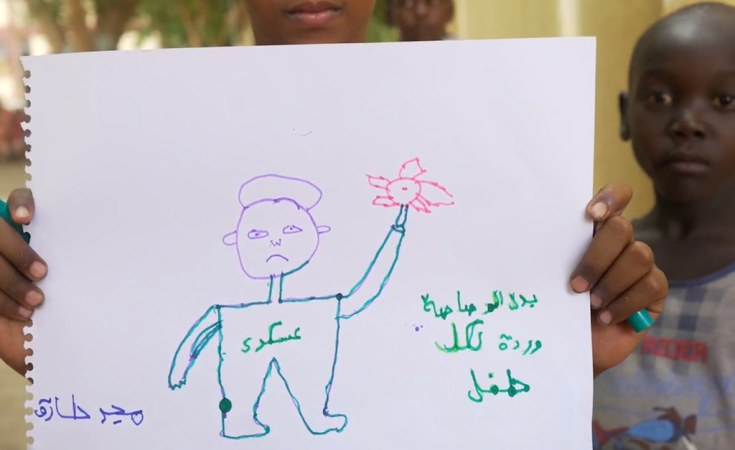New York — All around the globe, the most vulnerable among us are suffering the gravest consequences of war. Children bear the brunt of the horrors inflicted by States and armed groups worldwide, with recent examples found in Gaza, Ukraine, Sudan, Myanmar, the Democratic Republic of the Congo, Syria, and Afghanistan.
In a context in which multilateralism is facing this "perfect storm" of crises, with increasing risks to global security, the international community and its institutions must rise with a unified voice to demand protection, justice, and accountability for those lives that are shattered by the atrocities of war.
Every child deserves the right to grow up in an environment free from fear and violence. The Universal Declaration of Human Rights explicitly recognizes that children are entitled to special care and assistance.
Numerous international laws include similar obligations. Yet, 468 million children (1 in 6) worldwide live in areas affected by armed conflict, where these rights are stripped away.
This leaves consequences, both physical and mental ones, that can last for a lifetime. Children have become victims of unspeakable acts in armed conflict, including their recruitment and use as fighters and guards.
They have also been subjected to sexual violence, abduction, killing and maiming. Schools and hospitals are destroyed in front of their eyes, thus preventing them from basic services.
Accountability must be one of the cornerstones of our response to grave violations against children. Responsible States and non-State armed groups must be clearly identified in the forthcoming "list of shame" of the UN Secretary-General's Annual Report on Children and Armed Conflict
Humanitarian relief is also denied on arbitrary grounds. In 2022 alone, almost 24,000 grave violations of children's rights in war were documented by the United Nations. This number, which is indicative in nature, is only expected to have increased in 2023. These violations not only rob children of their childhood but also undermine the very fabric of humanity.
This is not simply a humanitarian crisis, or a legal one; it is a moral imperative. We must do more. Having examined grave violations against children for years, Watchlist on Children and Armed Conflict would like to emphasize three much-needed avenues.
Accountability must be one of the cornerstones of our response to grave violations against children. Responsible States and non-State armed groups must be clearly identified in the forthcoming "list of shame" of the UN Secretary-General's Annual Report on Children and Armed Conflict.
Given that the listing mechanism has improved the situation of children in various conflict settings, it is imperative that consistent evidence-based decisions are taken.
Protecting children from being harmed in war should not be subject to political considerations. Individual perpetrators responsible for these grave violations must also be held accountable for their actions. Mechanisms and institutions, including those at the local level, must be supported to hold them accountable and deliver justice for the victims.
All parties involved in armed conflict must prioritize the best interest of the child in their actions and decisions. Whether it is in ceasefire negotiations or military operations, such as those taking place in populated areas, the well-being of children must be at the forefront of considerations.
Parties must take proactive measures to prevent harm to children. This requires adherence to international law, including international humanitarian law and international human rights law, and incorporating child protection concerns into military planning and operations.
States participating in multilateral discussions must also prioritize the best interest of the child and emphasize the importance of protecting children in Resolutions, statements and other relevant documents and discussions.
Finally, child protection programs in conflict-affected areas must be bolstered, ensuring that children have access to essential services, such as education, healthcare, psychosocial support, and safe spaces.
There are many organizations around the world doing vital work and providing some of these services. They should be supported and their access to those in need must be granted.
Their programs not only provide immediate relief to children caught in the crossfire but also lay the foundation for their long-term recovery and reintegration into society. Investing in child protection is both a moral imperative and a strategic decision to build a sustainable peace.
We must be part of a world where children are born free from violence and fear. That demands a more active engagement to protect them and support the institutions and organizations working towards that goal. We have a collective responsibility to ensure that children are shielded from the horrors of war and be given the opportunity to thrive in a safe and nurturing environment. History is watching.
Dr. Ezequiel Heffes is the Director of Watchlist on Children and Armed Conflict


